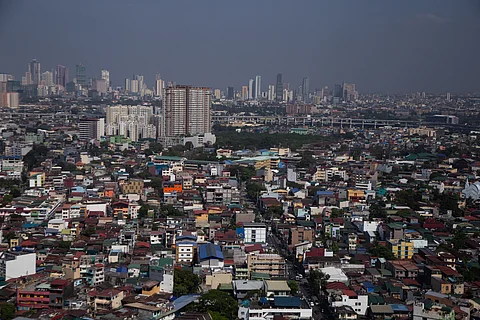
- NEWS
- the EDIT
- COMMENTARY
- BUSINESS
- LIFE
- SHOW
- ACTION
- GLOBAL GOALS
- SNAPS
- DYARYO TIRADA
- MORE

The Philippine residential real estate market is showing signs of cautious recovery in the first quarter of 2025, buoyed by lower interest rates and aggressive promotions by developers, according to the latest report from Leechiu Property Consultants (LPC).
Demand for condominium units in Metro Manila surged by 14 percent during the quarter, with 6,508 units taken up — a welcome boost to a market still recalibrating from the pandemic’s disruptions and global economic uncertainties. The rise in demand is largely attributed to three consecutive quarters of key policy rate cuts, which have helped lower financing costs and improve buyer confidence.
“We’ve seen a good start for the year for the residential market. But we need to move with caution for now due to very recent developments in the world capital markets,” said Leechiu Property Consultants director Roy Golez.
“For buyers, this is a good time to take a deeper dive into developer offerings. There might be a short window of opportunity to acquire property at favorable terms.”
Despite the demand growth, the number of new residential launches in Q1 2025 dropped sharply by 77 percent, with only 1,347 units introduced to the market compared to 5,928 units in the previous quarter. This signals a strategic pivot among developers, who are focusing on clearing existing inventory, particularly within the mid-range segment, before launching new projects.
In another positive sign, Non-Performing Residential Real Estate Loans (NPRREL) declined to 6.3 percent in Q4 2024, down from a pandemic-era peak of 9.6 percent in Q3 2021. Although this marks continued improvement, the ratio remains above pre-pandemic levels, reflecting ongoing caution in the lending and borrowing space.
While the mid-market segment saw more movement, the luxury residential segment contracted by 39 percent in Q1, reflecting a more selective investor base amid global financial volatility. However, this market remains a strategic focus for long-term investors, with several high-end projects in the pipeline over the next few years.
The outlook for the Philippine residential property sector in 2025 is cautiously optimistic, LPC says. Developers are expected to remain conservative with new launches while intensifying marketing efforts, offering competitive payment terms and incentives to attract buyers.
With high levels of unsold inventory still in circulation, buyers are advised to take advantage of the current environment, where flexible terms and attractive pricing remain prevalent — at least in the short term.
“Developers will need to be more aggressive with their marketing,” Golez added. “For now, the market offers good opportunities — but that window might not stay open for long.”
